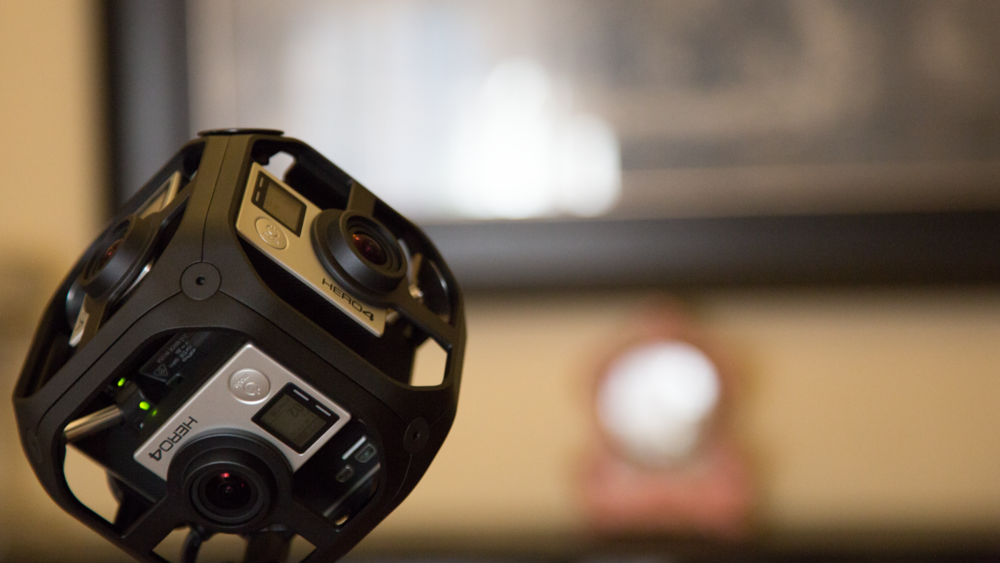How to Compose Your Shot When Your Camera Can See Everything
By Jim Bask
 Something to remember when shooting spherical video is that everything is visible in the shot. Even if you think you are being clever by hiding behind a boulder or a tree, you might not be as well hidden as you think. This can make it a challenge if you only want your subject in the scene, or especially challenging if you don’t want anyone to be in the scene. If you need to be directing on-camera talent, this too can become difficult. There’s no traditional way to feed the subject their lines, or for that matter, know if it was even a good take or not. It is possible to view the talent by affixing a smart phone below the spherical camera and streaming video to another device. You may even try setting up a security camera in the rafters so you can monitor the talent’s performance from another room. If the camera is far enough away from the spherical camera, it may not even be noticeable.
Something to remember when shooting spherical video is that everything is visible in the shot. Even if you think you are being clever by hiding behind a boulder or a tree, you might not be as well hidden as you think. This can make it a challenge if you only want your subject in the scene, or especially challenging if you don’t want anyone to be in the scene. If you need to be directing on-camera talent, this too can become difficult. There’s no traditional way to feed the subject their lines, or for that matter, know if it was even a good take or not. It is possible to view the talent by affixing a smart phone below the spherical camera and streaming video to another device. You may even try setting up a security camera in the rafters so you can monitor the talent’s performance from another room. If the camera is far enough away from the spherical camera, it may not even be noticeable.
Camera Angle and Placement
Something else to keep in mind when framing up your shot is that no matter what spherical camera you’re using, it will essentially be recording at a very wide angle. This means you will want to put your spherical rig a bit closer to the subject than you might think. A good rule of thumb is to place your subject 3 to 6 feet from the camera. If the subject gets too close to the camera, the seams — places where the different cameras’ fields of view meet — will become noticeable. This can cause parts of your subject to disappear into the seam. If they get too far away from the camera, they simply become much too small to seem important in the scene, and the viewer will begin look elsewhere. By placing your subject at the optimal distance, the viewer will feel as if they are actually there in the scene….[continue reading]

